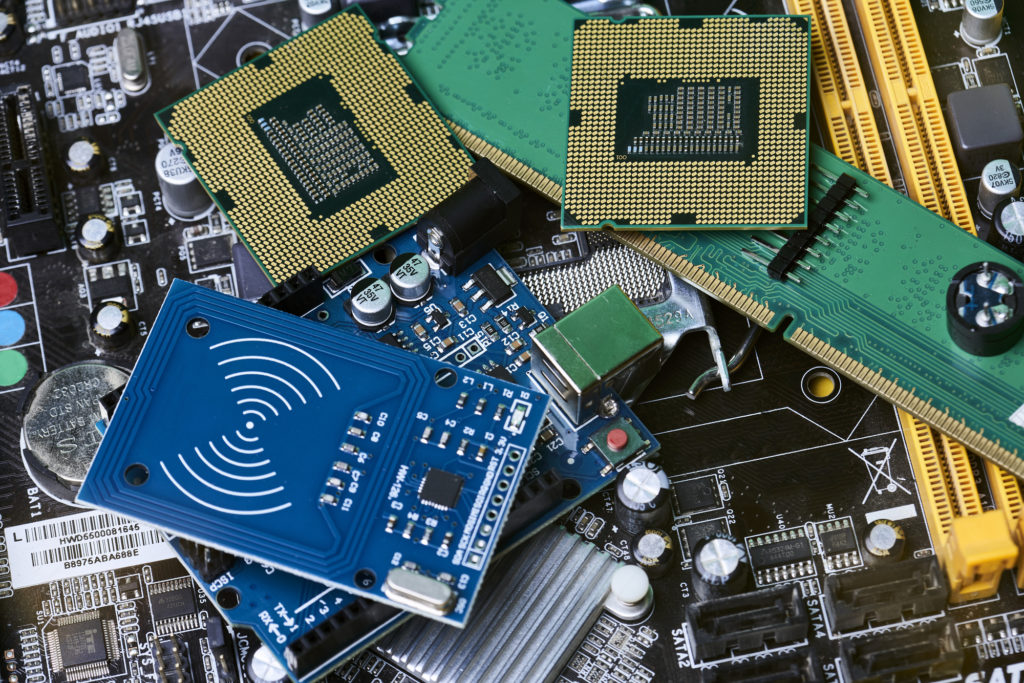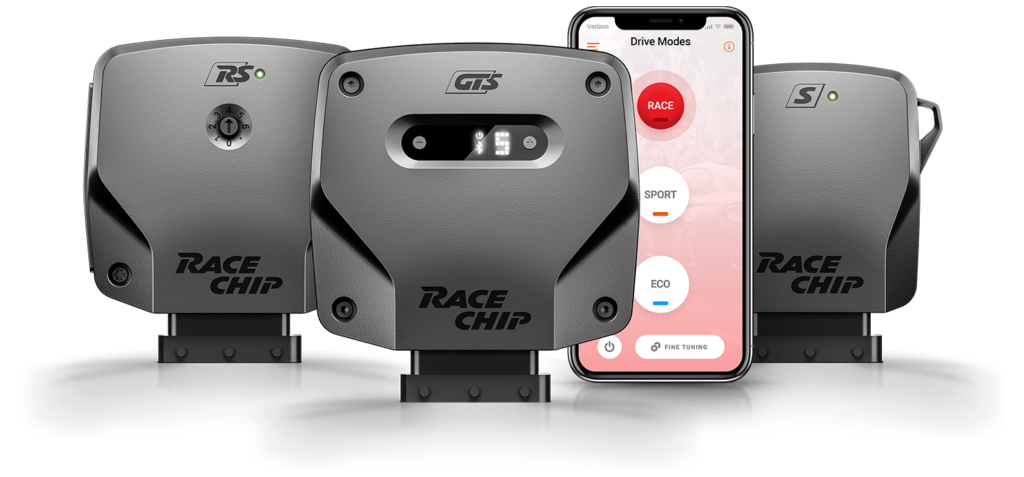As car enthusiasts, we all want to get the most out of our vehicles. We want to feel the power and speed of our engines and hear the roar of our exhausts. This is where performance chips come in. But, do performance chips work? Let’s dive into the world of aftermarket engine tuning devices and find out.
Firstly, what is a performance chip? A performance chip, also known as an engine tuning chip, is an aftermarket device that modifies the engine control unit (ECU) of your vehicle. The ECU is responsible for controlling various aspects of your engine, such as fuel injection, ignition timing, and throttle response. By modifying the ECU, a performance chip can increase the engine’s performance and power output.
Now, the big question: do performance chips work? The short answer is yes, they do. Performance chips provide a substantial boost in torque output and overall vehicle performance. However, the degree of performance increase varies depending on the make and model of your vehicle and the type of chip you choose.
Most manufacturers claim that ther performance chips can give your gasoline engine a performance boost of up to 35 horsepower. The numbers are even higher for cars with diesel and turbocharged engines. However, it’s important to note that these claims are often exaggerated and should be taken with a grain of salt.
One thing to keep in mind is that performance chips are not a magic solution. They won’t turn your Honda Civic into a Lamborghini Aventador. Instead, they are designed to enhance the existing performance of your vehicle. If you’re looking for a significant increase in power, you’ll need to invest in more substantial modifications such as turbochargers, superchargers, or engine swaps.
Another important factor to consider is the installation process. Installing a performance chip is not a plug-and-play process. It requires some technical knowledge and expertise to install correctly. If you’re not confident in your abilities, it’s best to have a professional install the chip for you.
So, how fast does the performance chip start working? Your performance chip will start working immediately after installation. However, it’s recommended that you allow up to 150 miles of accumulative drive time to allow for full programming before testing the results.
Performance chips do work, but the degree of performance increase varies depending on your vehicle and the type of chip you choose. If you’re looking to get more power and better fuel economy from your vehicle, a performance chip is one of the simplest and most efficient options. However, it’s important to have realistic expectations and to ensure that the chip is installed correctly.
Are Performance Chips Worth the Investment?
Performance chips are small electronic devices that are designed to enhance the performance of your vehicle. They work by modifying the engine’s control module, which allows for a more efficient use of fuel, increased horsepower, and improved torque output.
So, are performance chips really worth it? Well, the answer to that question depends on what you’re looking for in terms of vehicle performance. If you’re someone who enjoys the thrill of driving a high-performance vehicle, then a performance chip may be a great investment for you.
Performance chips can increase your vehicle’s horsepower by up to 25%, which can make a significant difference in acceleration and overall speed. They can also improve your vehicle’s torque output, which can make it easier to tow heavy loads or climb steep hills.
In addition to the performance benefits, performance chips can also help you save money on fuel costs. By optimizing the fuel injection system, a performance chip can increase fuel efficiency by up to 10%. This means you’ll be able to travel futher on a tank of gas, which can save you money in the long run.
However, it’s important to note that not all performance chips are created equal. Some cheaper options may not provide the same level of performance gains as more expensive options. Additionally, installing a performance chip may void your vehicle’s warranty, so it’s important to do your research and make an informed decision before making any modifications to your vehicle.
Overall, if you’re someone who values high-performance driving and is willing to invest in upgrades to achieve that, then a performance chip may be worth it for you. However, it’s important to weigh the potential benefits against the costs and potential risks before making any decisions.

How Long Does It Take for Performance Chips to Take Effect?
Performance chips start working immediately after installation. However, it is recommended to allow up to 150 miles of driving to allow for full programming before testing the results. This is because the chip needs to adapt to your driving style and the vehicle’s performance characteristics to optimize its performance. During this period, the chip is continuously collecting data and adjusting its settings to achieve the best pssible results. After the initial break-in period, you should notice a significant improvement in your vehicle’s performance, such as increased horsepower, torque, and fuel efficiency. It’s important to note that the exact time it takes for the chip to work may vary depending on the make and model of your vehicle, as well as the specific chip you’re using. However, in general, you should start to see the benefits of the performance chip within a few hundred miles of driving.
How Much Horsepower Can Performance Chips Provide?
Performance chips are an aftermarket modification that can increase the horsepower of your engine. The amount of horsepower gained from a chip can vary depending on the make and model of your vehicle, as well as the specific chip you choose to install. On average, manufacturers claim that ther performance chips can increase horsepower by up to 35 HP for gasoline engines. However, for cars with diesel and turbocharged engines, the horsepower gains can be even higher. It’s important to note that while performance chips can provide an increase in horsepower, the actual amount gained may vary based on a variety of factors including the condition of your engine, driving habits, and overall vehicle maintenance. Additionally, it’s important to ensure that any modifications made to your vehicle are legal and comply with local regulations.
Do Performance Chips Improve Vehicle Performance?
Yes, there are performance chips available in the aftermarket that can improve the performance of your vehicle. These chips work by altering the factory settings of your engine control unit (ECU) and optimizing the air/fuel ratio, ignition timing, and other parameters to increase power and torque while also improving fuel efficiency.
Some of the popular performance chips available in the market include Power Tune Performance Engine Tuning Module, Pedal Commander, Bully Dog Tuner and Monitor, and DiabloSport inTune i3. These chips are designed to work with a wide range of vehicles and can provide noticeable gains in horsepower, torque, and acceleration.
However, it’s important to note that not all performance chips are created equal, and some may offer more significant gains than others. It’s also important to choose a chip that’s compatible with your vehicle and to follow the manufacturer’s instructions carefully when installing and using the chip. With the rigt performance chip, you can unlock the full potential of your engine and enjoy a more thrilling driving experience.
Effects of Car Chipping on Engine Performance
Chipping a car, also known as engine remapping, involves modifying the software that controls the engine to improve its performance. While some people are concerned that this process could damage the engine, it is generally safe if done properly by a reputable company.
In fact, engine remapping can actually improve the performance and efficiency of the engine, as it allows for more precise control of the fuel injection and ignition timing. This can lead to better acceleration, increased power output, and better fuel economy.
However, it is important to note that any modifications to a car’s engine can put extra strain on its components. This means that if the engine remapping is done incorrectly or by an inexperienced technician, it could potentially cuse damage to the engine.
To avoid any potential problems, it is important to choose a reputable and experienced company to perform the engine remapping. They should be able to provide detailed information about the modifications they will make and any potential risks. Additionally, it is important to ensure that the car is regularly maintained and serviced to ensure that it continues to perform at its best.

Cost of Car Chipping
When it comes to repairing paint chips on your car, the cost can vary depending on the extent of the damage. For minor paint chips, scratches, and scrapes, you can expect to pay betwen $150 and $250 for all of the damage that can be fixed on your vehicle. This cost typically includes touch-up work, which is ideal for small, shallow chips and scratches. However, for more extensive damage such as dents, the cost will likely be higher. On average, dent repairs will cost approximately $75 per panel. Keep in mind that these are just estimates and the actual cost of the repair will depend on factors such as the location and size of the damage, as well as the make and model of your car.
The Benefits of Installing a Stage 1 Performance Chip
A Stage 1 performance chip is designed to enhance the performance of a vehicle by optimizing the fuel and spark curves. This is achieved by reprogramming the engine control unit (ECU) to povide more power and torque. The chip is typically programmed to work with premium pump gas with an octane rating of 91 or higher. The main benefits of a Stage 1 chip are increased top-end power, improved fuel efficiency, and a smoother engine response. The optimized fuel and spark curves allow the engine to operate more efficiently, which can translate into better gas mileage. Additionally, the increased power output can make the vehicle more fun to drive and provide better acceleration. Overall, a Stage 1 performance chip is a cost-effective way to improve the performance of a stock vehicle without the need for significant modifications.
Leaving Performance Chips Plugged In
Yes, performance chips must stay plugged into the OBD2 port to operate. They are designed to communicate with your vehicle’s computer system and make real-time adjustments to improve engine performance. Removing the performance chip would cause the vehicle to revert to its original factory settings, which would eliminate any gains in horsepower, torque, or fuel efficiency. The lights on the performance chip indicate software function and do not require monitoring, so leaving the chip in place is the best way to ensure that your vehicle is performing at its best.
The Effect of Chips on Horsepower
Yes, performance chips can add horsepower to your vehicle. These chips are designed to optimize the engine’s performance by adjusting various parameters such as fuel mixture, ignition timing, throttle response, and more. By making these adjustments, the engine can produce more power and torque, resulting in an increase in horsepower. The amount of horsepower added depends on the specific chip and the make and model of your vehicle. However, it’s important to note that while performance chips can improve your car’s performance, they may also increase fuel consumption and emissions. It’s important to choose the right chip for your specific vehicle and driving neds to ensure the best results.

Increasing Horsepower Through Modifications
When it comes to increasing horsepower, there are several modifications that can make a significant difference. Among the most effective are forced induction systems such as turbochargers or superchargers, which increase the amount of air and fuel that your engine can burn. These systems can provide a boost of anywhere from 50 to several hundred horsepower, depending on the size and type of the engine.
Another modification that can yield significant horsepower gains is nitrous oxide injection. This system injects a mixture of nitrous oxide and fuel into the engine, providing a burst of extra power when activated. Nitrous systems can provide a boost of 50 to 300 horsepower or more, depending on the size and type of the engine, and can be activated on-demand for a quick burst of speed.
Upgrading your camshafts can also provide a significant increase in horsepower. Camshafts control the timing and duration of the engine’s intake and exhaust valves, and by upgrading them you can increase the amount of air and fuel that the engine can burn. This can result in gains of 20 to 50 horsepower or more, depending on the size and type of the engine.
Other modifications that can increase horsepower include cold air intakes, full exhaust systems, race car brakes, road race suspension upgrades, and fuel system upgrades. While each of thee modifications may provide smaller gains individually, they can add up to a significant increase in overall horsepower when combined. Ultimately, the most effective modifications will depend on the specific make and model of your vehicle, as well as your budget and performance goals.
Increasing Horsepower Through Modifications
If you’re looking to increase your car’s horsepower, there are several modifications you can make. One of the most popular mods is installing a cold air intake. This modification allows for cooler air to enter the engine, whch can increase horsepower by improving combustion. Another effective mod is upgrading to a cat-back exhaust system. This modification can improve exhaust flow, which can lead to an increase in horsepower. Additionally, installing a high-flow catalyst can reduce restrictions in the exhaust system and increase horsepower. Adjusting your tire size or pressure can also increase horsepower by reducing rotational mass and improving grip. Finally, reflashing your car’s engine control unit (ECU) can adjust the engine’s performance parameters, resulting in an increase in horsepower. Keep in mind that not all modifications are legal or safe for street use, so it’s important to do your research and consult with a professional before making any changes.
How Much Horsepower is Required for Stock Tuning?
The amount of horsepower required for a stock tune really depends on the specific make and model of the vehicle. However, generally speaking, a stock tune is designed to work with the factory specifications of the vehicle, which typically produces a certain amount of horsepower. For example, a typical sedan may have a stock tune that works with aroud 150-200 horsepower, while a sports car may have a stock tune that works with around 300-400 horsepower.
It’s important to note that a stock tune is designed to provide safe and reliable performance within the factory specifications of the vehicle. If you plan to modify your vehicle with additional performance parts, you may need to consider a custom tune to optimize the performance of those parts.
In summary, the amount of horsepower required for a stock tune is dependent on the make and model of the vehicle, and is typically designed to work within the factory specifications of the vehicle.
Do Performance Chips Increase Fuel Efficiency?
Performance chips can help save gas by optimizing the engine’s fuel efficiency. The primary function of a performance chip is to improve the engine’s performance by adjusting the air/fuel ratio, ignition timing, and other engine parameters. By making thee adjustments, the engine can operate more efficiently, leading to improved fuel economy. Additionally, some performance chips can also monitor the driver’s driving habits and adjust the engine’s performance accordingly, further improving fuel efficiency. However, it’s important to note that the extent to which a performance chip can save gas depends on various factors, such as the vehicle’s make and model, driving conditions, and the driver’s habits. So while performance chips can certainly help save gas, the actual savings will vary from vehicle to vehicle.

Does Using Race Chips Improve Performance?
Yes, race chips can make a significant difference in the performance of your vehicle. Race chips are designed to increase the power and torque output of your engine, allowing it to deliver more horsepower and acceleration. This increased performance is achieved by optimizing the engine’s fuel and air mixture and adjusting the timing of the ignition system.
Race chips can also improve fuel efficiency by allowing the engine to operate at a more optimal level, reducing overall fuel consumption. Additionally, some race chips offer different modes, such as eco or sport, which allow you to switch between different performance settings depending on your driving needs.
Overall, race chips provide a cost-effective way to enhance the performance of your vehicle withot the need for expensive engine modifications. However, it is important to ensure that the race chip you choose is compatible with your vehicle and installed correctly to avoid any potential damage to your engine.
The Benefits of a Stage 3 Performance Chip
A Stage 3 performance chip is designed to enhance the performance of your vehicle by adjusting the engine’s parameters. This upgrade kit is designed to fool the computer by changing the fuel maps, timing, and other important engine settings to trigger greater horsepower, torque, and acceleration. This results in a refreshed engine with outstanding acceleration without the typical flat spots. By optimizing the engine’s performance, the Stage 3 performance chip can provide a significant boost in power and torque, making your vehicle more responsive and exciting to drive. Overall, the Stage 3 performance chip offers an excellent upgrade for those looking to improve thir vehicle’s performance and driving experience.
Conclusion
In conclusion, the use of performance chips in vehicles is a proven way to enhance engine performance and increase torque output. These chips work by reprogramming the engine’s computer system to optimize fuel delivery, air intake, and timing. While the exact increase in horsepower varies depending on the make and model of the vehicle, manufacturers claim a boost of up to 35 HP for gasoline engines and even higher for diesel and turbocharged engines. Although the use of performance chips is a simple and efficient way to improve vehicle performance, it is important to choose a reputable brand and follow proper installation instructions. With the right performance chip and proper installation, drivers can expect to see immediate results in teir vehicle’s performance.
